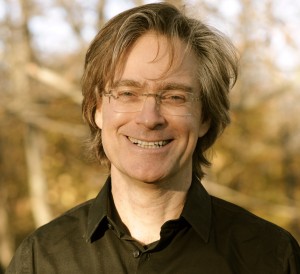Marc Gafni is publishing in a serialised form his book Mystery of Love. You can find two excerpts here.
Everyman’s Eros
The eros experience is the province of mystics, artists and scholars. But not only. It awaits all of us in every arena of endeavor.
Have you ever gone jogging? You get up not at all enthusiastic about running but somehow feeling obligated. You reluctantly get dressed and begin your route. Slowly the discomfort fades and you begin to enjoy yourself. You find yourself in the rhythm. And then, on good days, at some point you break through an invisible barrier and begin to fly. Ecstatic, you lose yourself in the wind. Your body, the earth, the wind, the rhythms of your pace, the sound of your feet, all merge into one. It is no longer accurate, even if but for the briefest of moments, to say “I am running.” Rather, you are the wind, you are running.
difference between us is simple. You come to conquer the mountain but the mountain is stronger than you, so you are conquered. I come to merge with the mountain – so the mountain loves me and lifts me to her summit.”
And another excerpt:
The Spell of Spelling – Panim
In the Hebrew mystical tradition, language is not the mere random designation of sounds and letters in a particular pattern. For the mystic, words are vital portals to meaning. Language is the spiritual DNA of reality. Thus when one root word is used for seemingly disparate ideas you can rest assured that these different ideas are in fact integrally related. So let’s watch for a moment as the magic of languages dances before us.
The Hebrew term for the Holy of Holies is lefnie u’lefnim. Literally rendered into English this means ‘the inside of the inside’. This was not merely a reflection of the physical fact that it was the inner most point in the Temple. Indeed, teach the mystics, the opposite is true – it was situated in the inner most physical point in order to evoke the sense of interiority that is the very key to eros.
In another architectural expression of this idea, the Temples of the Masonic order have doors which open only from the inside. One must insert their hand through an opening in the door to grasp the handle on the inside. The point – in order to open the portals to mystery, one must approach from the inside. What’s more, this opening was shaped like a heart. Eros – the yearning for the inside – is the essence of love. The Masonic order of course springs from the Templars, a monastic order of Christian mystics in Jerusalem who fell in love with and understood deeply the eros of the Temple.
That however is just for starters. Hold on, for the magic of language, the spell of spelling – has just begun. The Hebrew word for “inside,” panim, has two other meanings as well. The first not surprisingly, is face. Face is the place where my insides are revealed. There are forty five muscles in the face. Most of them unnecessary for the biological functioning of the face. Their major purpose it would seem is to express emotional depth and nuance. They are the muscles of the soul. Every muscle of the face reflects another nuance of depth and interiority. When I say, “I need to speak face to face,” I am in erotic need of an inside conversation. At this point all of the cell phones and sophisticated internet hook-ups won’t give me what I need, for while amazingly efficient and effective, they are non-erotic. True erotic conversations rarely happen on the Internet.
The spell continues. There is a third meaning to the Hebrew root panim. In a slightly modified form it means ”before,” in the sense of appearing before God. Specifically, the biblical myth text in Leviticus tells of the Temple’s high priest – who on the biblical Yom Kippur, the Day of At-one-ment, appear Lifnei Hashem: ‘Before God’.
Read in the English this appears similar to a summons to appear “before” a judging court, generally not a joyous occasion. For the Hebrew mystics, however, rooted as they are in the magic and spells of language, it is an entirely different affair. Remember that all three English words, face, inside and before, share the same Hebrew root. The essence then of the day of at-one-ment then is not a commandment to appear ”before God” in the magistrate sense. It is rather an invitation to live on the inside of God’s face. Once the journey to God is finished, the infinite journey in God begins[i].
[i] annemarie schimmel – western scholar of islam
Other links you may be interested in:
Marc Gafni on Facebook
Dr. Marc Gafni TED event
Marc Gafni Books
Marc Gafni Unique Self





